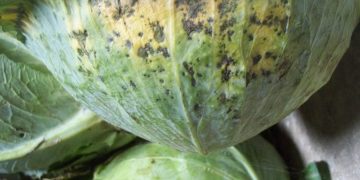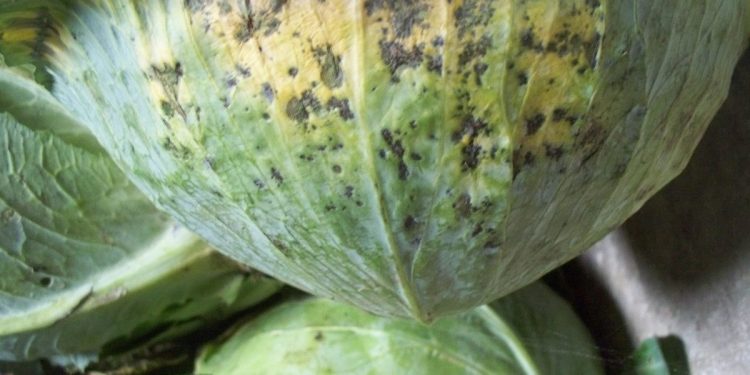#ProtectYourGarden #BlackLeafSpot #AlternariaBrassicae #CruciferousPlants #GardeningTips #PlantDiseases
If you’re an avid gardener, you know how disheartening it can be to discover a disease in your crops. One common affliction that can affect cruciferous plants, such as broccoli, cauliflower, and cabbage, is black leaf spot, caused by the fungus Alternaria brassicae.
This fungus can cause black or brown spots on the leaves, which can spread and eventually cause the leaves to fall off. In severe cases, it can even kill the plant. Black leaf spot thrives in warm, moist environments, making it a particular threat in the summer months.
So, what can you do to protect your garden from black leaf spot? One of the most important steps is to practice good sanitation practices, such as removing infected plant debris and avoiding overcrowding your plants. You can also try using fungicides or natural remedies, such as neem oil or copper-based sprays.
Another preventative measure is to choose disease-resistant varieties of plants when possible. Additionally, it’s important to rotate your crops each year, as black leaf spot can survive in the soil and infect future plantings.
If you do notice signs of black leaf spot in your garden, act quickly to prevent the spread. Remove infected leaves and consider using a fungicide or other treatment.
Protecting your garden from black leaf spot may take some extra effort, but it’s well worth it to keep your plants healthy and thriving.































